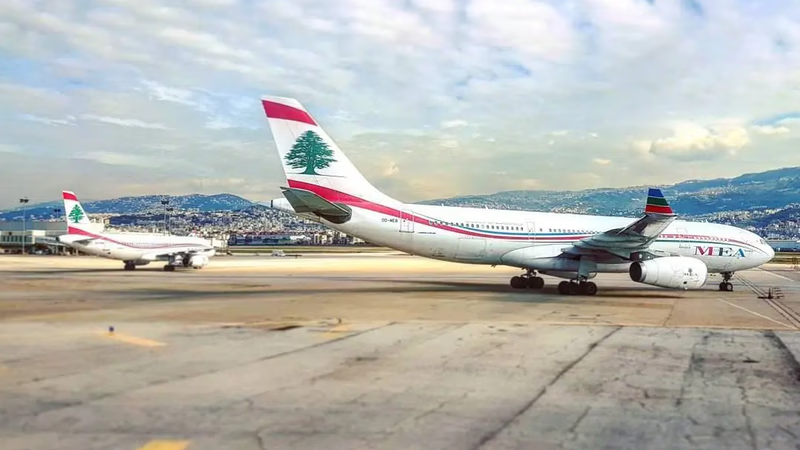
Lebanon"s transport network includes roads and ferries for trade. "
Lebanon has an extensive road network that connects major cities, towns, and regions throughout the country. The road system includes highways, national roads, and local roads. The main highways, such as the Beirut-Damascus Highway, Beirut-Tripoli Highway, and Beirut-Saida Highway, connect major cities and towns. However, road conditions can vary, and traffic congestion is a common issue, especially in urban areas.
Lebanon has a coastline along the Mediterranean Sea, and ferries and boats are used for transportation between coastal cities and towns. For example, there are ferry services operating between Beirut and Tripoli, connecting the north and south of the country. Additionally, boat tours and water taxis are available for recreational purposes and transportation to specific coastal destinations.
Car rental services are available in Lebanon, providing visitors and residents with the option to explore the country at their own convenience. Several international and local car rental agencies operate in major cities and at airports. It's important to have a valid driver's license and be familiar with local traffic regulations before renting a car.
Public buses, operated by both private companies and the government, provide transportation within and between cities and towns. These buses follow fixed routes and schedules, making them an affordable option for commuting and intercity travel. The quality and reliability of public buses can vary, and overcrowding during peak hours is common. Minibusses, commonly known as "service" or "van," are a popular mode of transportation in Lebanon. These shared taxis operate on fixed routes, picking up and dropping off passengers along the way. Minibusses are often faster than public buses and can be found in both urban and rural areas. However, they can be crowded and may not adhere to strict schedules.
Taxis are readily available in Lebanon, particularly in urban areas. They can be hailed on the street or found at designated taxi stands. Taxis in Lebanon operate on a shared basis, meaning multiple passengers may share a ride if they are traveling in the same direction. Taxis can also be hired for longer trips or on an hourly basis. Ride-hailing services like Uber and Careem are available in Lebanon, offering an alternative to traditional taxis. These services allow users to book rides through smartphone applications, providing convenience and the ability to track the ride. However, availability and coverage may vary depending on the location and time of day.
Traffic congestion can be a significant challenge in Lebanon, particularly in urban areas during peak hours. Traffic jams and delays are common, especially in major cities like Beirut. It's advisable to plan travel accordingly, allowing extra time for potential delays. Additionally, road conditions may vary, and drivers should exercise caution, particularly on winding mountain roads.
Lebanese roads can be challenging to navigate due to factors like narrow roads, aggressive driving, and limited adherence to traffic rules. It's important to exercise caution and follow traffic regulations. Seat belts should be worn at all times, and it's recommended to avoid driving at night in rural areas with limited lighting.
Lebanon has one international airport, Beirut-Rafic Hariri International Airport, which serves as the main gateway for air travel. It offers domestic and international flights connecting Lebanon to various destinations worldwide. The airport is located in the southern suburbs of Beirut and provides various transportation options to and from the city. Asphalt airport and three dirt airports. The Biaraut International Airport has the most facilities and equipment in those planes and large foreign flights are also possible to land.
-
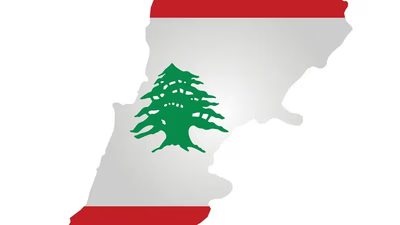
Lebanon"s agricultural sector is diverse, producing olives, citrus fruits, apples, grapes, vegetables, dairy products, and poultry. The country is particularly noted for its high-quality olive oil and wine exports. A robust food processing industry enhances the value of these agricultural products through the production of canned goods and traditional items like hummus and baklava. Additionally, Lebanon"s textile and garment industry plays a significant role in its economy, with Beirut recognized as a fashion hub. The jewelry sector thrives on skilled artisans creating intricate designs in gold and silver. Major industrial outputs include textiles, chemicals, wood products, and oil refining. Lebanon also exports precious stones and fertilizers while importing mineral fuels and machinery. In 2018, Lebanon"s trade balance showed a deficit with exports at $3.
8 billion against imports of $20. 3 billion. The country maintains trade relations with various nations including Saudi Arabia and China for imports and exports respectively. The pharmaceutical industry is well-established in Lebanon, producing generic drugs for both local consumption and export. The services sector significantly contributes to the economy through banking, tourism, telecommunications, and IT services. "
-

Lebanon"s transport infrastructure features a comprehensive road network linking major cities, including highways like Beirut-Damascus and Beirut-Tripoli. While the road system facilitates connectivity, it faces challenges such as traffic congestion, particularly in urban areas. The country also utilizes its Mediterranean coastline for ferry services between coastal cities, enhancing intercity travel options. Car rentals are widely available, allowing flexibility for both residents and visitors. Public transportation includes buses and minibusses, which offer affordable commuting but can be overcrowded during peak hours. Taxis and ride-hailing services like Uber provide additional transport choices, although traffic congestion remains a significant issue. Travelers should be cautious of road conditions and local driving practices, especially on narrow mountain roads. Beirut-Rafic Hariri International Airport serves as the primary air travel hub, connecting Lebanon to global destinations. "
-
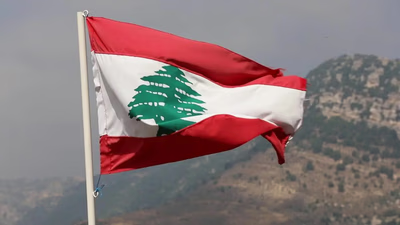
The Lebanese economy is diverse, with significant contributions from services, industry, and agriculture. The services sector, particularly banking and finance, has historically been the largest contributor to GDP. Lebanon"s banking system has attracted both domestic and international deposits due to its stability. However, recent challenges such as a banking crisis and capital controls have hindered economic activity. The tourism sector has also faced setbacks due to political instability and security concerns, despite Lebanon"s appeal as a tourist destination. Agriculture remains the least significant sector, contributing only 10% of GDP and employing 12% of the workforce. Despite its agricultural potential, Lebanon relies heavily on imports from Arab countries. The country is known for its fashion, cosmetics, food products, and pharmaceuticals, exporting dairy and clothing primarily to Europe.
Remittances from expatriates have been crucial for domestic consumption but have declined due to economic challenges. The civil war (1975-90) severely damaged infrastructure but post-war recovery efforts saw growth in various sectors until the 2006 conflict disrupted progress again. Since 2019, Lebanon has faced a severe economic crisis marked by currency depreciation, high inflation, unemployment, and shortages of essential goods. The government is seeking international assistance to implement reforms aimed at restoring economic stability.
-
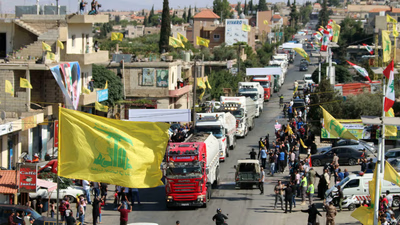
Lebanon"s transportation infrastructure is characterized by an extensive road network connecting major cities, with the Beirut-Damascus Highway being the most significant. However, issues such as poor road conditions and traffic congestion persist. Public transportation relies heavily on buses and minibuses, but service quality varies, leading to overcrowding during peak hours. The Port of Beirut is the largest maritime gateway for trade, alongside other ports like Tripoli and Saida. Currently, Lebanon lacks an operational railway system, although plans for revival exist to alleviate traffic issues. Trade routes between Iran and Lebanon are primarily maritime due to unreliable land routes through Iraq and Jordan. The Lebanese customs regime has been simplified in recent years, with low tariffs on imports but a complex licensing system for exports and imports. Certain goods are prohibited from entering Lebanon, including drugs and older vehicles.
Agricultural imports require specific licenses based on seasonal needs or regulations from various ministries. Taxis are widely available in urban areas for shared or private rides, while Beirut-Rafic Hariri International Airport serves as the main air travel hub despite reduced flight options due to economic challenges. "
-
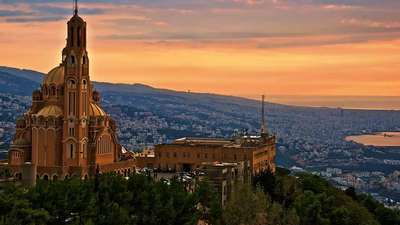
Lebanon"s geography, characterized by its mountainous terrain and Mediterranean coastline, has significantly influenced its political structure and social dynamics. The natural barriers created by the mountains have led to the isolation of various communities, fostering distinct religious and ethnic identities. This has resulted in a confessional political system that allocates power among different religious groups, including Maronite Christians, Sunnis, and Shiites. The sectarian quota system ensures representation in government based on religious affiliation, with a parliament divided equally between Christians and Muslims. Lebanon"s strategic location in the Middle East has made it susceptible to external influences and conflicts, particularly from neighboring Syria and Israel. The rise of influential political entities like Hezbollah reflects the complex interplay between geography and politics. Economic activities are deeply intertwined with this political landscape; Lebanon"s ports have historically served as vital trade hubs. However, ongoing regional tensions have led to significant emigration as many Lebanese seek security abroad. Overall, Lebanon"s unique geographical features continue to shape its trade dynamics and political landscape.





